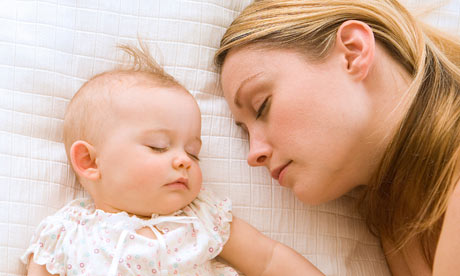Non-REM Sleep
- Light sleep - half awake and half asleep. Muscle activity slows down and slight twitching may occur.
- True sleep - after around ten minutes of light sleep, we enter true sleep lasting around 20 minutes. Ventilation rate and heart rate begins to slow down.
- Deep sleep - brain begins to produce delta waves (high amplitude, low frequency), ventilation and heart rate at their lowest. If awakened during deep sleep, we do not adjust immediately and often feel groggy and disorientated.
REM Sleep
- Rapid eye movement (REM) period begins around 70 to 90 minutes after falling asleep.
- We experience around three to five REM episodes every night. Although we are not conscious, our brain is active, allowing dreams to occur. Breathing rate and blood pressure rises.
One of the most recent and compelling explanations for why we sleep is based on findings that sleep is correlated to changes in the structure and organization of the brain. This phenomenon, known as brain plasticity, is not entirely understood, but its connection to sleep has several critical implications. It is becoming clear, for example, that sleep plays a critical role in brain development in infants and young children. A link between sleep and brain plasticity is becoming clear in adults as well. This is seen in the effect that sleep and sleep deprivation have on people's ability to learn and perform a variety of tasks.
